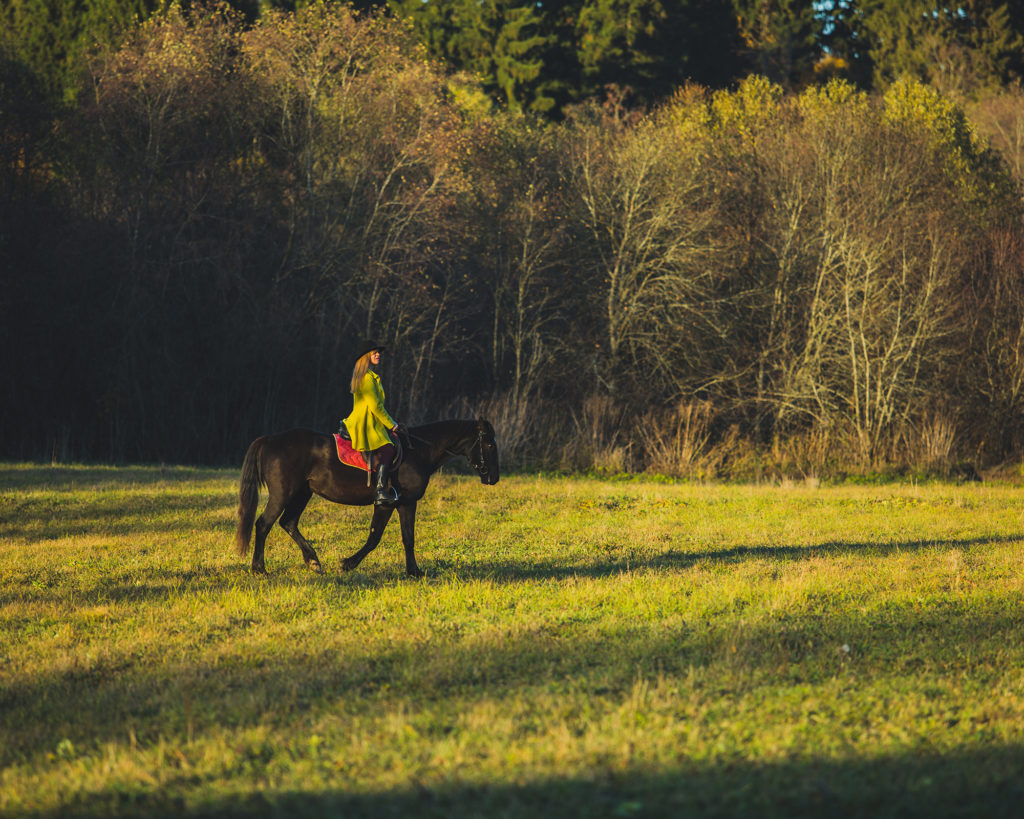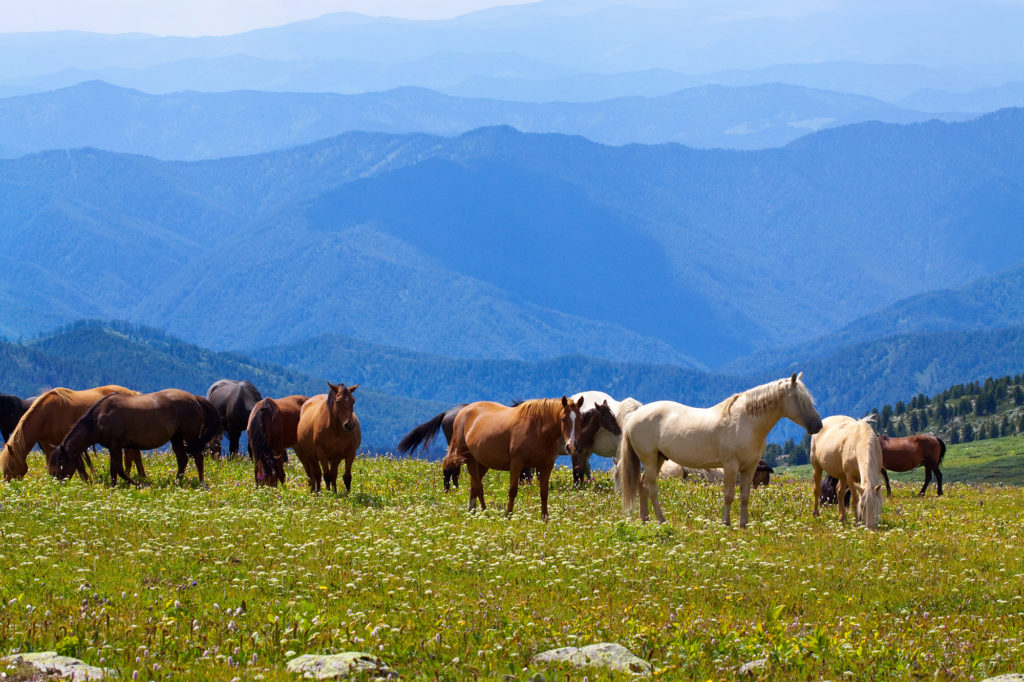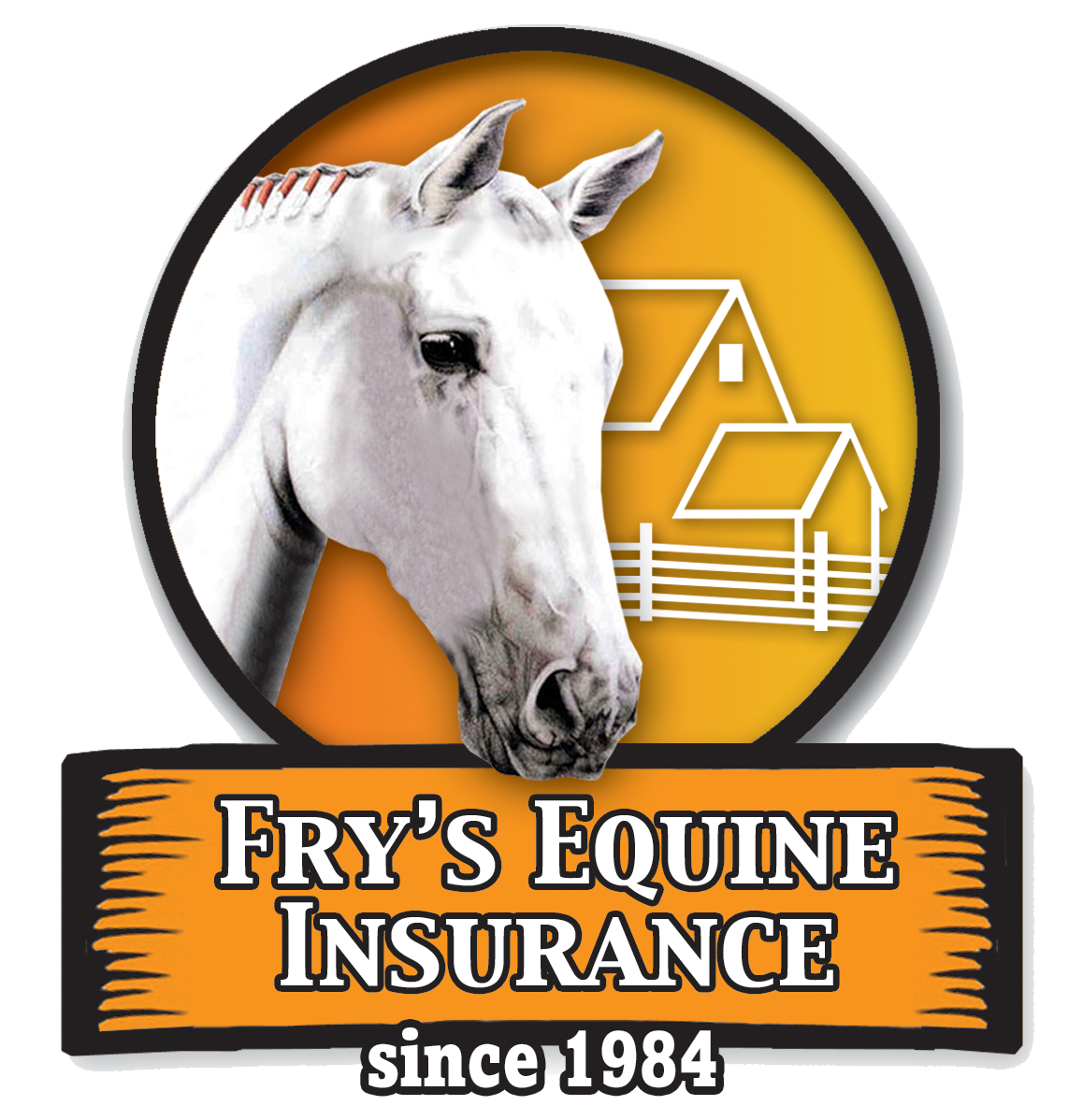Frequently Asked Questions

Personal Equine Issues
Do I really need insurance?
Can you afford to pay an attorney to defend you in a lawsuit? Do you have the money in the bank to rebuild your barn, home or replace a horse that is valuable to you? If you answered no to either of these questions, then YES, you really need insurance.
Insurance was originally intended to help you recover from a financial loss and pay your litigation costs. Sounds simple enough, but today, we live in a society where people are quick to place blame. Fortunately, there are programs available to insure you and your equine activities appropriately.
Why Should I insure my horse?
You should insure your horses to protect yourself against the possibility of losing them to various causes, which could leave you in financial distress. Too often, unexpected incidents or medical emergencies take place that, without insurance, you may be unable to accommodate, leaving your horse to suffer or die unnecessarily.
Generally, the cost of insurance is minimal when compared to the overall costs of maintaining your horse, paying for colic surgery, or paying a lawsuit. In fact, many times the cost of entering your horse in a show is higher than the cost of its insurance.
How much will it cost to insure my horse?
The only way to get an accurate answer to this question is to email or call us and request a quote. Premiums vary depending on the breed and age of the horse, its value, its use, etc. Mortality coverage is similar to ‘Life Insurance’ and is for the value of the horse should it die. Extended coverages are available for surgery & medical coverage, as well as loss of use, infertility, or named perils. We have several companies that we can look at so you get the coverage that works for you.
For a free quote, please email us here with the breed, use, age and value of the horse and the state you live in.
At what age can my horse be insured?
A foal can be insured at 24 hours after birth with a satisfactory vet report confirming it is in good health completed by a licensed veterinarian. Blood work including IgG test results are required on newborn foals. Between the ages of 31 day and 20 years, you can insure your horse with a statement of condition form (if the horse is over $100,000 in value, we’ll need a vet certificate).
What is the oldest age at which I can insure my horse?
Companies begin putting age restrictions on horses after they reach 15 years. With our companies, you can obtain full mortality and some medical options through the age of 20 (each company has different restrictions and we’d be glad to discuss them with you).
If my horse has been treated for colic, can it be insured?
A horse can typically be insured after having been medically treated for an episode of colic, assuming the episode occurred over 6 months ago, there is no history of colic, and colic has not reoccurred. If there was a surgery to correct the colic, there is usually a one-year waiting period. Otherwise, the insurance company may accept coverage with an exclusion for colic and review the circumstances when your policy is up for renewal.
If my horse has required colic surgery, can it be insured?
All medical history including colic surgery is considered at the time you apply for insurance. Usually full mortality coverage will be offered if your horse has fully recovered and had no further colic problems for a period of 12 months following surgery. Depending on the situation, the policy may require an exclusion for colic or intestinal disorders.
Is my horse covered during transport?
Yes, he’s covered while being ground transported in the U.S. and Canada under mortality insurance.
I’m concerned about being able to pay the vet bills if my horse becomes ill or has an injury. What types of coverages are available?
If your horse is between the age of 31 days and 20 years, you should consider adding medical coverage to your mortality policy. This coverage will reimburse you for covered veterinary costs (both medical and surgical) in the event your horse has an injury, illness, accident or disease.
Can I get Major Medical/Surgical, Surgical Only, or Loss of Use coverages by themselves?
No. These coverages are only available as endorsements added to a Full Mortality policy.
How does Loss of Use coverage work? Loss of Use reimburses you a percentage of your horse’s insured value in the event he is permanently unable to perform his insured use.
Loss of Use is only available for performance horses (hunter/jumper, dressage, cutting, reining), not breeding or pleasure horses. Contact us for additional information.
Are there any uses/disciplines which do not qualify for coverage?
Race horses, horses in race training, or horses intended to race do not qualify for medical coverage. Your horse’s use and/or intended uses must be stated on the mortality application.
What do I need to do to get immediate insurance coverage for my horse?
Most companies require an application and statement of condition (health) form completed by you to start coverage (along with payment). However, depending on the age, value and when you acquired the horse, you may need a satisfactory vet report. If you are purchasing a horse, before you finish the deal be sure to call us for a quote and any requirements so you can have insurance in place before you transport.
If your horse has had prior medical problems, a vet exam may be required to provide full details of the prior incidents and confirmation of full recovery.
If you request additional coverages such as loss of use or fertility coverage, you will need the vet certificate and additional forms.
Download the appropriate forms and email, fax, or mail them to us today. If all information is order, coverage can be bound immediately.
The application must be completed/signed by the insured (owner of the policy). If a trainer has knowledge of the horse’s health and you want him/her to complete the statement of condition form, that is acceptable; however, you (the owner) must also sign the form.
I purchased my horse a couple of years ago and got a great deal. Now that I have put some training into him how do I determine my horse’s value today?
Setting your horse’s value is not always black and white. Before you insure your horse you should be prepared to do a valuation with your insurance agent. The agent will then present this valuation to a company underwriter for approval. Completing the valuation before taking out the insurance policy–and not after the fact–will prevent many problems with a mortality claim.
For insurance purposes the purchase price initially becomes the horse’s value. However, that can change. Once you show or race your horse, other factors will affect the value. These include: show record, race record, earnings, points, or how successful a brother or sister out of the same mare has been.
Valuing a foal will be handled a little differently. In most cases two times the stud fee is the rule of thumb for valuation. However, there are exceptions to every rule. What has the mare produced? What have the mare’s other offspring accomplished? If applicable, what is the average selling price of other offspring out of the mare? Have there been any other foals that are full brothers and sisters, and what have they done?
These are a few ways to look at setting a value on your horse. The goal is to provide your insurance agent with as much pertinent information as possible so he or she has the opportunity to present your horse to the insurance company underwriter in the best light possible.
In the final analysis, ask yourself this question: Could I realistically sell this horse at this value today?
Farm Policy Questions

Do I need a farm policy and a homeowners policy?
No, you wouldn’t need both policies because a Farm policy can include coverage on your house, personal property, barns, equipment, tack, personal liability, and equine liability.
Does a farm policy cover flood damage?
A farm policy (like a home owners policy) does not cover damage due to flooding.
Can I keep my home owners policy and get a separate policy for my equine business?
You can; however, most homeowners policies exclude coverage on a building used in a business. This means that if a barn you use for your horse business has covered damage, the homeowner insurance company could deny your claim because the building is used in a business. Be sure to read your homeowners policy.

Equine Business Issues
I own a boarding stable and some of my boarders trade their labor for part of their stall rent by cleaning stalls. I have been told that this is not a good practice because of the insurance. Is that correct?
Typically, a liability policy covers you for bodily injury and property damage to others. It would exclude coverage for relatives and employees. In your situation where you are trading labor for stall rent, the adjuster could make the case that the boarder is an employee, in which case your liability policy would not cover you if that person were injured. You should cover your employees with workers compensation insurance.
Our local riding club puts on several shows each year. Are the participants covered under our club’s liability policy? Also, are the officers and directors covered under the club policy?
The answer depends upon what insurance carrier you are using. You need to speak to your agent and get your insurance company’s interpretation. I have investigated three major carriers on the subject of participants. I am going to generalize my answer to give you the broad differences in insurance coverage.
COMPANY NUMBER 1 excludes any person at a show that is signed up as a participant in the show. It does not matter if they are on the sidelines watching the show or practicing for the show or actually participating in the event. They are said to be participants because they have signed up to participate.
COMPANY NUMBER 2 states that a participant is only a participant when that person is practicing for the event or competing in the event. (The majority of our club/event policies fall under this.)
COMPANY NUMBER 3 states that participants are excluded from liability only on those activities specified, i.e. hunts, racing, rodeo-type, vaulting, polo and practices. Participants in team penning or barrel racing will not be excluded.
As for officers and directors – they would be covered as part of the club’s policy. However, remember that liability covers bodily injury and property damage to others. For example, if a horse kicks a spectator, the club may be sued. Your policy should cover that litigation. It would cover officers, directors, volunteers and club members as being part of the club. However, you must not confuse this with OFFICERS AND DIRECTORS COVERAGE. This is a specific coverage for officers and directors and would not be covered under your club liability coverage. An example of officer and director coverage would be if a director made a decision while executing his duties as a director of the club that caused financial loss or distress (such as discrimination). It would not be covered under the club liability coverage because it does not fall under the definition of property damage and bodily injury to others.
We can provide D&O liability coverage for your organization with a different policy if you are interested.
If I am providing riding instructions on my farm, what additional insurance coverage should I consider?
You should purchase a commercial equine liability policy . If you only have a homeowner’s policy, it usually will not provide liability protection for your horse business. Should one of your students sustain an injury, you could be held legally liable.
Keep in mind that many homeowners policies exclude coverage on buildings used in a business meaning you would have no coverage on an arena or barn used for lessons (or boarding, etc.). And some companies do not want to write your home/buildings at all. We can write a farmowners policy that will give you coverage for both your property (house, buildings, equipment) and liability (personal and equine).
I operate a boarding facility, what liability insurance should I consider?
In addition to the Commercial Equine Liability insurance, you should also consider including the Care, Custody or Control (CCC) Liability insurance.
CCC insurance will cover you if someone else’s horse is injured or dies while in your care. It covers the cost of defense for legal action as well as the loss or reduction in the value of their horse. The Care, Custody or Control Liability policy will pay up to the policy limit for the death or injury to non-owned horses in your care. Your Commercial Equine Liability Policy would pay only for the damages to property as well as injuries sustained by bystanders.
Again, keep in mind that many homeowners policies exclude coverage on buildings used in a business meaning you would have no coverage on an arena or barn used for boarding. And some companies do not want to write your home/buildings at all. We can write a farmowners policy that will give you coverage for both your property (house, buildings, equipment) and liability (personal and equine).
Do I need CCC coverage if all the horses at my barn are insured by their owners?
You should still purchase CCC coverage. A CCC policy covers you if one of those horses gets injured or dies while under your care. If you are deemed to have been negligent while caring for the horse, you can still be sued. If this happens, the CCC policy will pay for your defense and pay claims up to the coverage limits. Usually the cost to add CCC to your policy is less than an hour or two with an attorney.
Why should I consider replacing my Homeowner’s policy with a Farm/Ranch Owner’s policy?
A farm/ranch owner’s policy is specifically designed to include the insurance on not only your residence, but all other farm buildings or tenant’s dwelling on your property. Your barn will be insured at its replacement cost. Each building will be insured for its actual use. This policy can also provide insurance on your farm equipment, such as expensive tractors, as well as your household personal property. Both your personal and equine liability is included providing liability protection for all of your horse related activities.
Working With Fry’s Equine Insurance Agency

What kinds of questions should I be expected to answer when I am applying for an insurance policy?
When you apply for an insurance policy, you will be asked a number of questions which will be used to determine how likely you are to make a claim. This is similar to applying for automobile insurance.
When an insurance company is deciding whether or not to offer automobile insurance to a potential customer, it will want to know about the person’s previous driving record, whether they have any recent accidents or tickets, and what type of car is to be insured.
When insuring your farm, you need to know values of your home, barns and any other outbuildings, and the value of your farm personal property. You will also need to determine the amount of liability coverage you want to carry and the property deductible.
Why should I use an agent to purchase insurance?
Using an agent to purchase insurance provides the policyholder with more personal service. An agent with whom there is direct contact can be vital when purchasing a product and even more essential when filing a claim. An independent agent is able to deliver quality insurance with competitive pricing and can serve as a consultant for any questions you may have.
What do I need to do to renew my policy?
In order to renew any policy, we must have your completed renewal paperwork. Your renewal information is typically sent to you 30-60 days in advance. Please review the information we send and call us with any questions about changes to your coverage — if we don’t know about it, we can’t cover it for you. Be sure to include any address, telephone or email changes so that we may contact you if we have any questions.
You will need to provide current show records, breeding records and training fees to justify the insured value of your horse. It is very important that you report any health problems that have occurred including the date of incident, the diagnosis, treatment, and current status of the horse in relation to the problem.
How do I make a change to my current policy?
If it is necessary to make changes to your policy, please contact us by phone, email or letter.
For Mortality policies, we may need additional paperwork if you are adding a horse or increasing coverage. To remove a horse, we can take that information by phone or email.
For liability policies, a phone call will take care of most requested changes. Adding new liability exposures (i.e. training, boarding, lessons) may require a form to be completed but usually we can take care of this over the phone or email.
In the event that you need to cancel your policy, we do need a Cancellation Request signed and dated (we will email or mail that to you), and it can take up to 30 days to receive any return premium from the insurance company.
Is there a specific time limit for reporting a claim under my policy?
Most policies specifically require submission of the required claim documents within 30 days of the occurrence; however, mortality/medcial claims should be turned in immediately. Claims can be denied if policy conditions are not met. Always review your policy for claims reporting requirements.
How am I paid for major medical claims?
Simply advise us or the claims department of the medical treatment and submit all related bills. Once the claims adjuster receives a report from the attending veterinarian, the insurance company will reimburse you for all covered charges less the major medical deductible (subject to the policy terms). The claim check will be issued directly to you (you are responsible to pay the veterinarian or hospital).
How do I make a claim?
Emergency claim numbers are always provided with your policy. When you call the insurance company, they will assign an adjuster to your claim and the adjuster will give you the necessary information to proceed with your claim including the information you will need to provide.
If you cannot locate the emergency numbers, you can call our office at 800-842-9021 and one of our customer service representatives will assist you in reporting your claim. If you call after business hours, someone will call you on the next business day. However, if it is an emergency situation, you should always call the claims number directly.
What if I need to report a claim after hours?
Our Customer Service department is available Monday through Thursday 9:00a.m. to 5:00p.m. and Friday 9:00a.m. to 4:00p.m. (EST) to help with all your equine insurance needs. After hours, our automated answering service will prompt you to leave all pertinent information so that we can be prepared to handle your call most efficiently when we return your call. We do have an after-hours emergency number (614-404-3117); however, we recommend that a claim be called in directly to the company. If the agent on-call is away from the computer or gone to bed, it could delay our response and jeopardize your claim process.
If this is an emergency, you MUST contact the claims department directly. The number can be found in several places for mortality/major medical policies (in your policy, on your stall card, in the letter sent with your policy, on our Resources page at the bottom, but you will need to know the company or policy number).
These answers have been generalized and should not be used as an interpretation of your policy.
Read your policy thoroughly and ask your insurance agent for particular coverage. This list should only be used as a guide.
If you have any question you would like to see answered, please contact us.
